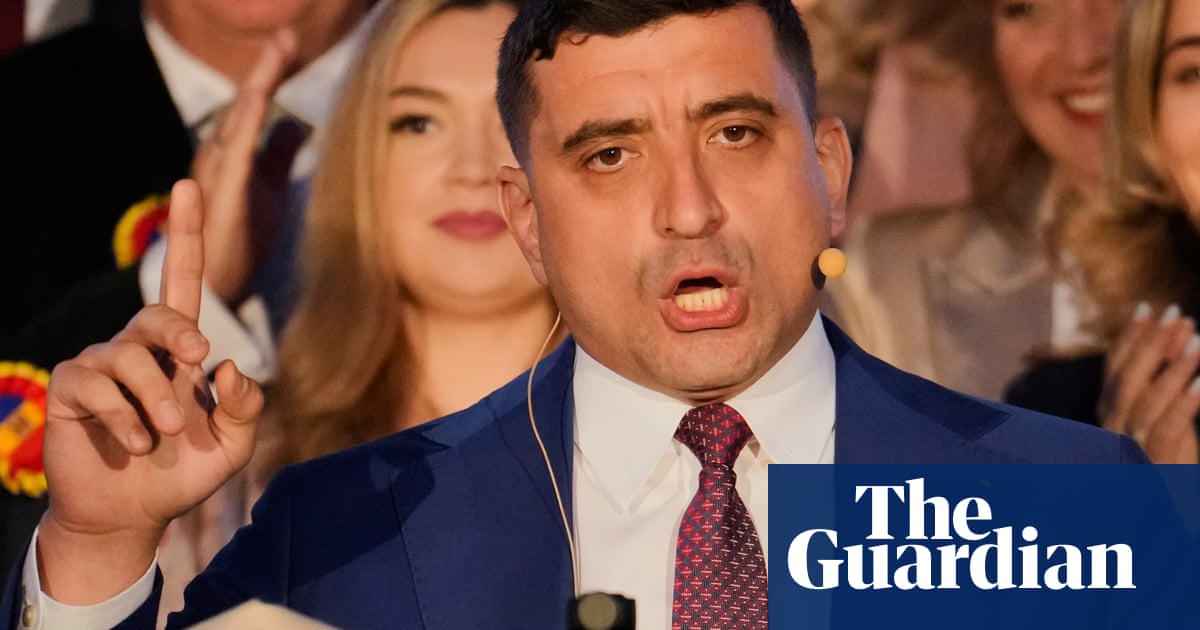The defeated ultranationalist candidate in Romania’s presidential election rerun has said he will ask the country’s top court to annul the vote on the same grounds – foreign interference – that led to the original ballot being cancelled last year.
George Simion, who wasdefeated in Sunday’s runoffby the liberal mayor of Bucharest,Nicuşor Dan, said on Tuesday he would ask the constitutional court to void the ballot “for the same reasons they annulled the elections” last year.
The election, which Dan won by a margin of 53.6% to 46.4%, was the second time the vote had been held. The first, last November, was cancelled by the court after the first round amid allegations of campaign financing violations and a “massive” Russian interference campaign.
The winner of the annulled vote, far-right firebrand Călin Georgescu, was barred from standing again and is under formal investigation on counts including misreporting campaign spending, illegal use of digital technology and promoting fascist groups. He denies any wrongdoing.
“Just as Călin Georgescu was removed and the elections were annulled, we will challenge the election of Nicușor Dan for exactly the same reasons,” Simion, an EU-critical, Trump-admiring former soccer ultra,said in a statementto local media.
“Why? Because there was vote buying,” said Simion, who formally conceded to Dan on Sunday night after first claiming to have won. “Because dead people voted on 18 May, and no calculation in the world can show us over 11.5 million Romanians voted.”
Simion has repeatedly alleged electoral fraud without providing evidence. His belated decision to contest the election’s outcome, while unlikely to succeed, will prolong the political uncertainty in Romania, which is under a caretaker government.
The ultranationalist, whose supporters carried out a parallel count at some polling stations, said votes were “correctly counted” but “international observers” had seen “foreign interference” and “social media and algorithms have been manipulated”.
He claimed there was “irrefutable evidence” of meddling by France, Moldova and others in “an orchestrated effort to manipulate institutions, direct media narratives and impose a result that does not reflect the sovereign will of the Romanian people”.
Simion referenced a suggestion by the founder of the Telegram messaging app,Pavel Durov, that Parishad asked it to “silence conservative voices” in Romania. France has “categorically rejected” what it called “completely unfounded allegations”.
Sign up toHeadlines Europe
A digest of the morning's main headlines from the Europe edition emailed direct to you every week day
after newsletter promotion
Russian-born Durov, who also has French nationality, is beinginvestigated by Francein connection with alleged criminal activity on the app, including child abuse images and drug trafficking. Telegram has said it abides by EU law and denies the platform facilitates illegal activities.
The far-right candidate said he had congratulated Dan on election night because “I love Romania, the Romanian people, and I never want to see bloodshed.” The count may have been correct, he said, “but before and during it, there was manipulation”.
He acknowledged there was “little chance that my request to the court will pass”, but said he was “appealing to all Romanians of good faith to … demand the cancellation of this masquerade”. He would provide those who wished with a template, he said.
